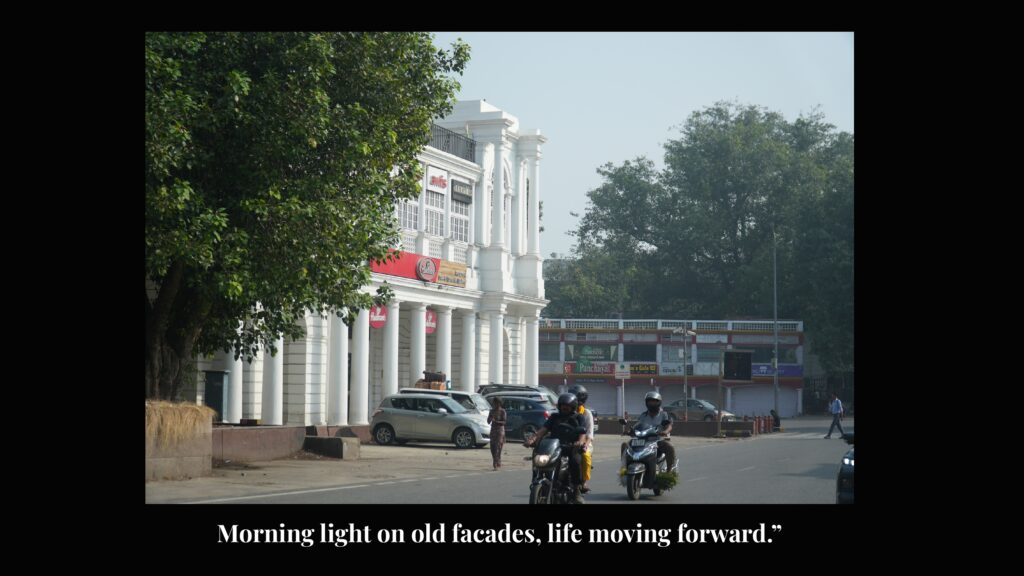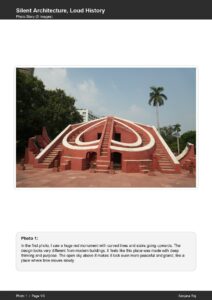HIMANSHI YADAV (BAJMC 3rd sem)
Knowledge Park 2 in Greater Noida, Uttar Pradesh, is a bustling area that hosts educational institutions, business offices, and residential complexes. Within this vibrant environment, the community of auto-rickshaw drivers plays an essential role in ensuring quick and efficient transportation for thousands of students, professionals, and residents. These drivers are not just mobility providers; they are integral to the socio-economic fabric of the region.

In Knowledge Park 2, auto-rickshaws bridge the gap between various public transportation options like buses and metro stations, and key destinations such as offices, educational institutions, and markets. Their flexibility in providing point-to-point services, unlike fixed-route public transport, makes them indispensable in this densely populated area. By offering shared rides and personalized services, auto-rickshaws help reduce traffic congestion, save time, and keep transport affordable.
For the drivers, this profession is their main livelihood. Most work from sunrise to sunset, providing for their families despite the harsh demands of the job. Although their daily earnings fluctuate based on passenger traffic and fuel prices, they remain committed to their work. Auto-rickshaws are a key part of Knowledge Park 2’s economy, which sees high passenger volume and active commercial activity. However, rising fuel costs, maintenance expenses, and competition from app-based services have made it increasingly difficult for drivers to make ends meet.
Beyond their role as service providers, auto-rickshaw drivers contribute to the social fabric of Knowledge Park 2. Many passengers rely on them not only for transportation but also for local advice and recommendations. Over time, drivers form strong bonds with regular customers, creating a sense of community. They also serve as informal ambassadors for the area, guiding newcomers and visitors with their in-depth knowledge of the local routes, shortcuts, and landmarks. This makes them an essential part of the region’s accessibility.
Despite their importance, auto-rickshaw drivers face significant challenges, particularly around regulatory issues. Difficulties in obtaining or renewing permits and a lack of structured training programs for traffic rules and passenger safety have created obstacles. However, these challenges have not discouraged the drivers. They maintain their stations, even during quiet periods, and are ready to assist passengers at any time, whether in an emergency or navigating heavy traffic. Additionally, drivers support each other by forming informal networks to share resources, information, and provide mutual assistance.
To support the auto drivers’ community, several measures could be introduced. Government schemes to subsidize fuel or maintenance costs would provide financial relief. The establishment of designated auto-rickshaw stands would help ease operations and reduce congestion. Digital literacy programs could help drivers adapt to new technologies and collaborate with ride-hailing services, improving their competitiveness. Driver unions, working with local authorities, could also enhance communication and conflict resolution.
The auto-rickshaw drivers of Knowledge Park 2 are a cornerstone of the area’s connectivity. Despite facing numerous challenges, their resilience and dedication are vital to the smooth functioning of this diverse region. With proper support, they can continue to thrive and contribute significantly to the growth and vibrancy of Knowledge Park 2.







Usually I do not read article on blogs, but I would like to say that this write-up very forced me to try and do it! Your writing style has been amazed me. Thanks, quite nice post.